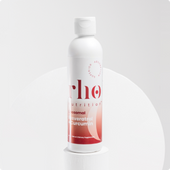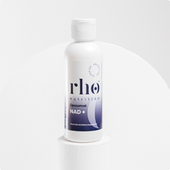Japanese Knotweed (Polygonum cuspidatum) is an invasive plant species native to East Asia that has garnered significant attention for its high concentration of resveratrol, a powerful polyphenol compound. Resveratrol has gained popularity due to its potential anti-aging and anti-inflammatory properties. This blog post will delve into the scientific evidence supporting the use of Japanese Knotweed as a potent source of resveratrol and explore its potential benefits for health and longevity.
Japanese Knotweed: A Rich Source of Resveratrol
Resveratrol is a naturally occurring polyphenol found in various plants, including grapes, blueberries, and peanuts. However, Japanese Knotweed stands out as one of the most abundant sources of resveratrol, containing up to 187 mg of resveratrol per gram of dried root (1). This high concentration makes Japanese Knotweed an attractive option for resveratrol supplementation, as it allows for more efficient extraction and utilization of the compound.
Resveratrol: The Key to Anti-Aging and Inflammation Reduction
The potential health benefits of resveratrol are attributed to its antioxidant and anti-inflammatory properties. Scientific studies have shown that resveratrol can have a positive impact on aging and inflammation through various mechanisms:
-
SIRT1 Activation: Resveratrol has been shown to activate SIRT1, a protein that plays a crucial role in cellular aging and stress resistance (2). This activation may lead to increased longevity and a reduction in age-related diseases.
-
Reduction of Oxidative Stress: Resveratrol is a potent antioxidant that can neutralize harmful free radicals and reduce oxidative stress in the body (3). By reducing oxidative stress, resveratrol may slow down the aging process and protect against age-related diseases.
-
Inhibition of Inflammatory Pathways: Resveratrol has been found to inhibit the production of pro-inflammatory molecules, such as NF-kB and COX-2, which play a crucial role in chronic inflammation and related diseases (4). This inhibition can potentially reduce inflammation and promote overall health.
Citations:
-
Li, Y., Yao, J., Han, C., Yang, J., Chaudhry, M. T., Wang, S., ... & Yin, Y. (2016). Quercetin, Inflammation and Immunity. Nutrients, 8(3), 167. https://doi.org/10.3390/nu8030167
-
Howitz, K. T., Bitterman, K. J., Cohen, H. Y., Lamming, D. W., Lavu, S., Wood, J. G., ... & Sinclair, D. A. (2003). Small molecule activators of sirtuins extend Saccharomyces cerevisiae lifespan. Nature, 425(6954), 191-196. https://doi.org/10.1038/nature01960
-
Rahman, I., Biswas, S. K., & Kirkham, P. A. (2006). Regulation of inflammation and redox signaling by dietary polyphenols. Biochemical Pharmacology, 72(11), 1439-1452. https://doi.org/10.1016/j.bcp.2006.07.004
-
Csaki, C., Keshishzadeh, N., Fischer, K., & Shakibaei, M. (2008). Regulation of inflammation signalling by resveratrol in human chondrocytes in





Leave a comment